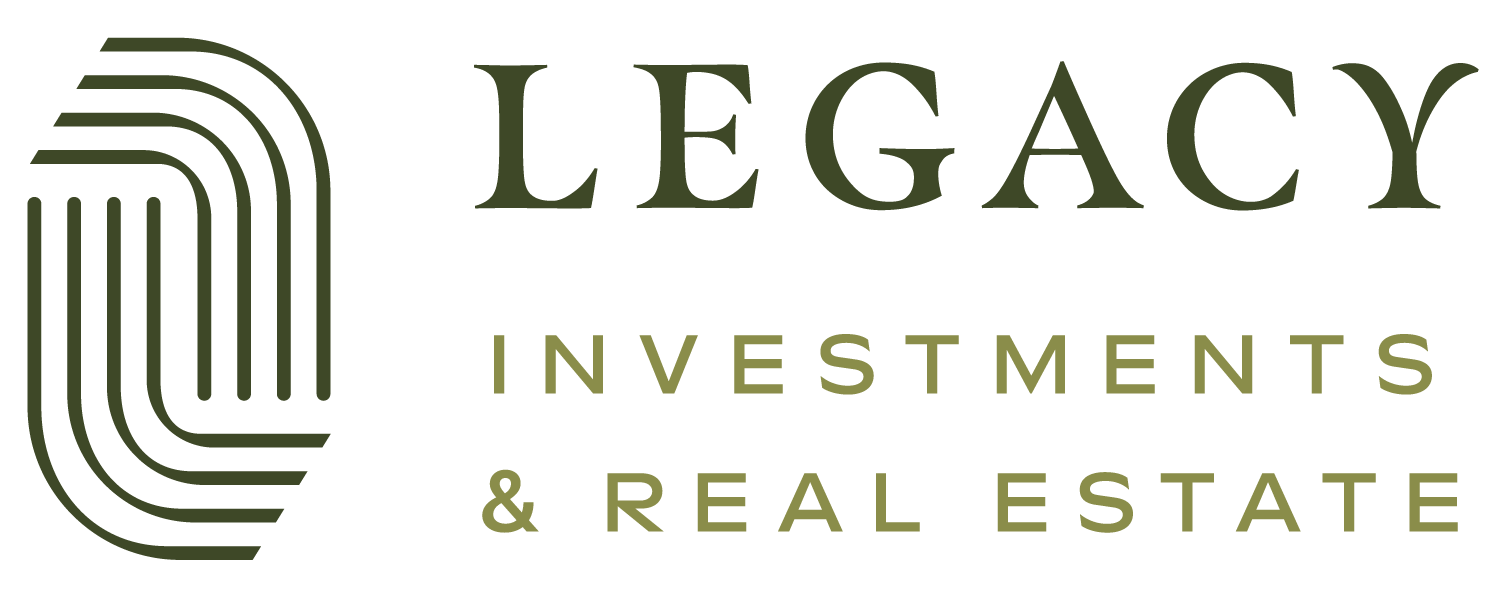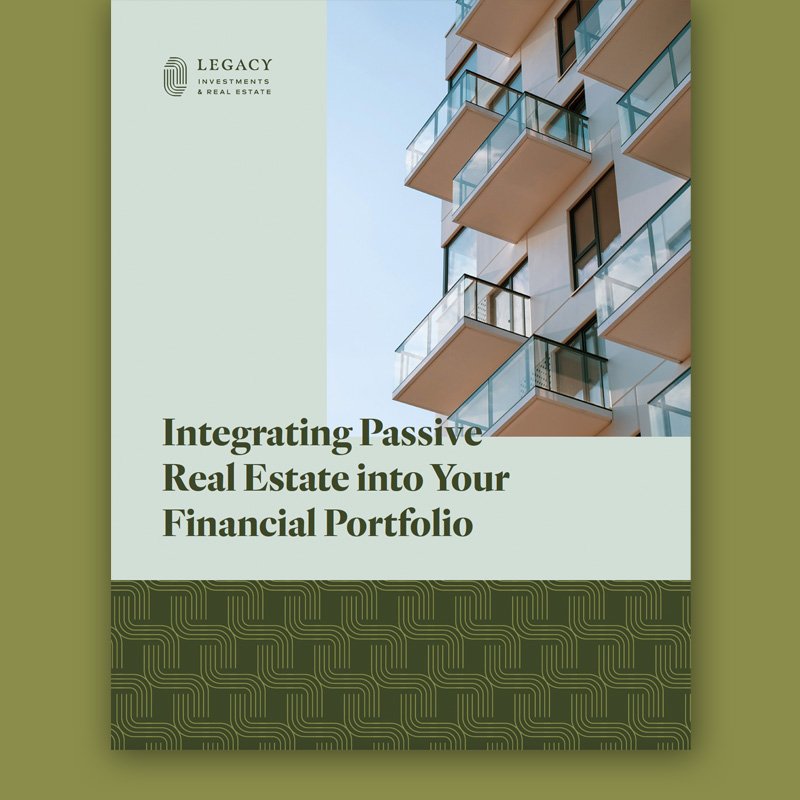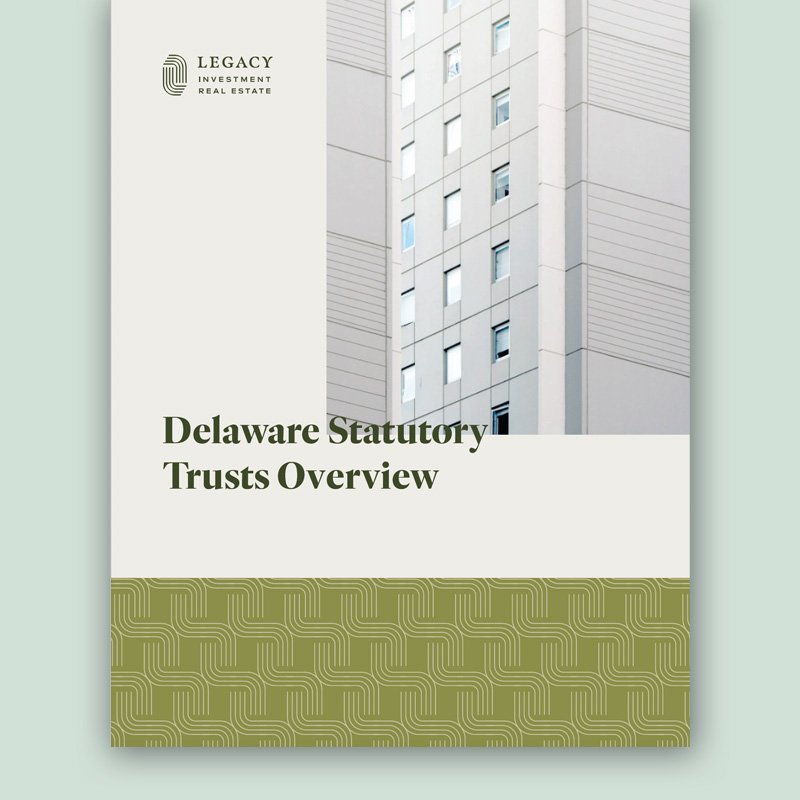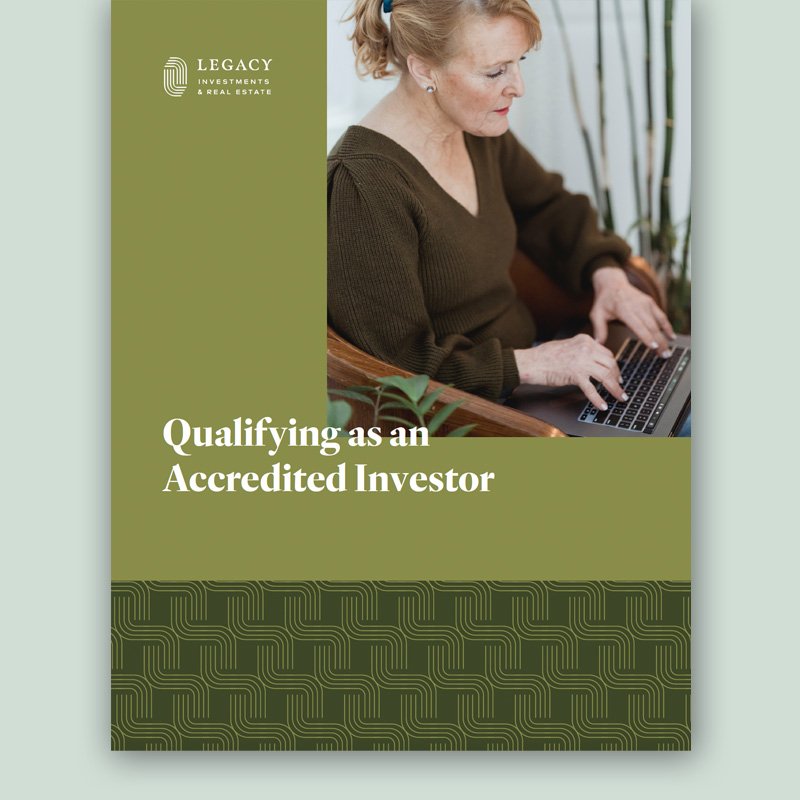
Our services
Passive Real Estate Investments
Passive investing through securitized real estate can provide accredited investors with the potential for all of the benefits of real estate investing without the headaches of property management.
Despite the various benefits that make real estate an attractive addition to their investment portfolio, many investors are held back by the burden that ongoing property oversight and management can create. Few investors are aware that there are other real estate investment options available.
Securitized real estate offers a passive form of real estate investment that combines the benefits of real estate with the rigorous due diligence and disclosures that are required of securities. Structured and managed by sponsors with decades of experience in the industry, these larger, institutional-grade investments require no investor participation in the oversight of the property. Instead, investors simply receive the potential for monthly income and other benefits.
These types of investments may help accredited investors:
Diversify their portfolios
Potentially increase their income and total return
Manage their income tax liability
Help hedge against inflation, recession, or both
Expand access to a broader range of assets than were previously available
With passive real estate investing, there is no need for management expertise, negotiating or deal-making experience, or large sums of money. While investment real estate may be difficult for you to own yourself, passive investing broadens your investment options, potentially making the following investments and asset classes available to you:
Types of Securitized Real Estate:
-
An investment vehicle that is often unknown to 1031 and 1033 Exchange investors that qualifies as replacement property in a 1031 and 1033 Exchange and helps defer capital gains tax (per IRS Rev Ruling 2004-86).
Despite the name, neither the property nor the investors need to be located in Delaware.
Formed by a third party sponsor, DSTs offer access to institutional properties and management that would typically only be available to large institutional investors.
-
A real estate investment strategy to defer taxes on capital gains resulting from the sale of any asset (real estate, a business, stock, primary residence, etc). If you reinvest capital gains realized on any investments in these zones through a qualified opportunity fund (QOF) you can defer taxes on those gains until 2026.
-
Alternative energy programs that raise money to invest directly in exploring and drilling for oil or natural gas. If the venture is successful, the program provides income over the productive life of the well or wells. If it’s not, for whatever reason, the program yields a loss.
The program buys or leases land that its sponsor/management team believes can be extracted from for a profit, secures the necessary permits, installs the required equipment, and coordinates the transportation of the oil or gas to storage and refining facilities.
Energy programs are generally structured as limited partnerships that have one or more general partners and a number of limited partners.
This kind of investment is used by high net-worth individuals for tax management purposes.
-
Pooled investment funds with a target real estate investment plan that are typically organized as limited partnerships, or LLCs, with the owners of the firm as general partners and the investors as limited partners.
Underlying investment is real estate with some kind of preferred return to investors.
Fund managers oversee the acquisition or development, financing, management, and disposition of the real estate on behalf of the investors.
-
A corporation that invests in real estate through properties or mortgages.
Typically raise capital to purchase a portfolio of properties over a period of several years to produce a rental income.
Can be offered as private placement investments to accredited investors or publicly traded.
Provide an alternative to individual ownership of real estate via fractional ownership in institutional quality real estate.
Do not qualify as “like kind” for the purposes of a 1031 exchange and therefore are not recognized as a 1031 Exchange eligible investment option.
-
A type of closed-end fund that is registered with the SEC under the Investment Company Act of 1940.
Interval funds sell shares continuously at a price based on the fund’s net asset value and are generally open to anyone who can afford the minimum investment amount.
Before purchasing shares, it is important to note that interval funds are illiquid and have no daily repurchase provision as with open-end funds and no secondary market as with exchange-traded funds. Instead, liquidity is provided by periodic repurchase offers that each fund must make to buy back between 5% and 25% of investors’ outstanding shares. The offers are made at set intervals which are part of the fund’s objectives and policies. Because the repurchase price is based on the fund’s NAV as of a particular date, the dollar amounts vary from offer to offer.
Real Estate Asset Classes:
-
The most common type of real estate investing, residential real estate includes single family homes and multi-unit properties that can be rented out to tenants or sold to homeowners.
Single family rentals
Duplex
Multifamily/Apartments
Senior Living
Student Housing
-
Investors who opt for commercial properties may find they represent higher income potential, longer leases, and lower vacancy rates than other forms of real estate.
Self Storage
Industrial
Warehouses
Essential Retail (like grocery stores)
Medical and Life Science
Office Buildings
Hotels
-
Includes unoccupied or un-or-under-developed areas. While many investors may be unfamiliar with raw land and new construction investing, these investment types can represent attractive profits for investors.
Vacant Land
Working Farms
Ranches
Our Process
Our process, combined with our specialized expertise and high standards for both sponsors and service, ensures we help you avoid mistakes and close on a replacement property(s) that are in total alignment with your investment and lifestyle goals.
1. Tell us your story
We use an extensive new client profile to ensure that we fully understand your short-term and long-term financial goals and needs. We communicate with your other advisors, such as tax professionals or lawyers, to ensure everyone is on the same page about objectives, tax consequences, timelines, and responsibilities.
2. Review your custom proposal of replacement properties
Based on your profile and investment objectives, we refine acquisition targets until your goal properties are found. Our extensive due diligence process results in properties that fit your risk/reward ratio.
3. Close on desired properties
Once your target properties are identified, we handle all of the negotiating and closing processes, helping to navigate any uncertainties of your exchange. Our membership to the 1031 Capital Solutions Strategic Alliance allows us to tap into the operational expertise of a dedicated processing team who will manage the administrative and transactional details of your investment. Every detail is handled by professionals who are deeply engaged in their specific areas of responsibility.
4. Stay in touch
Once you successfully close on your replacement property(s), we stay in regular contact with you as we monitor your investments. We are available to answer your questions about current and future investments.
What can we help you with?
Whatever your situation or goals, we’ll work together to determine an approach and customize a plan that’s right for you.
-
You are a high income earner and have already maxed out your 401k contributions and the “traditional” investment options available through your financial planner. You’d like to continue investing and take advantage of market opportunities while diversifying from the “traditional” investments in your current portfolio.
Many of the funds offered at Legacy can often accommodate investment minimums of $25,000. This makes them more accessible to investors that want to include passive real estate in their overall investment diversification strategy or investors looking to take advantage of market opportunities, imbalances, or “black swan” events. We will work with you to create a plan tailored to your specific financial goals.
-
You’ve received a step up in basis on your real estate holdings after the death of your spouse or family member. You’d like to discuss if you should keep (and manage) your current real estate or transition into passive real estate.
Our experienced team can help you compare all of the options – including keeping and managing your current property or executing a 1031 Exchange to transition into a management-free, passive real estate investment.
If you choose to execute a 1031 Exchange, we will seamlessly guide you through the process to ensure all regulations are followed and no taxes are owed.
-
You have a self-directed retirement account, such as a self-directed IRA or 401(k) and want to take advantage of the account as a way to add private real estate investments into your portfolio.
Many of the funds offered at Legacy qualify for retirement accounts and allow investors to potentially grow their retirement savings through tax-advantaged, passive real estate investments. We will work with you to create a plan tailored to your specific retirement needs and financial goals.
-
As a business owner, making the decision to sell your business can be emotional and the process can feel overwhelming. Additionally, you don’t want to see the payoff for your hard work be lost to capital gains.
Considering real estate as a part of your investment strategy for the sales proceeds may generate tax advantages to offset the capital gains. Our experienced team can help you compare all of your investment options and seamlessly guide you through the process to ensure all regulations are followed and no taxes are owed.
-
You are an experienced real estate investor and feel that you’re over-concentrated in a specific asset type or market, such as single family rentals in the area where you live.
Many of the funds offered at Legacy may generate the benefits you’re used to, but offer a new asset class, investment location, or an overall strategy diversification without the need for real estate expertise. Our experienced team can help you compare all of your investment options and work closely with you to create a diversification strategy tailored to your unique investment goals.
What our clients and Partners say













